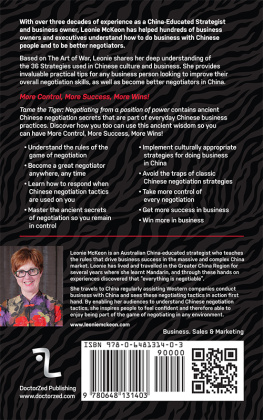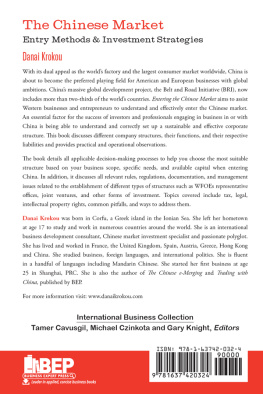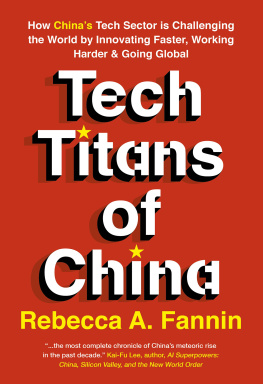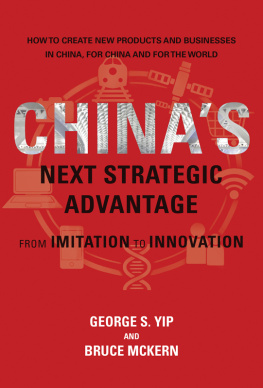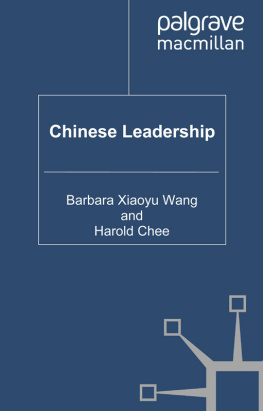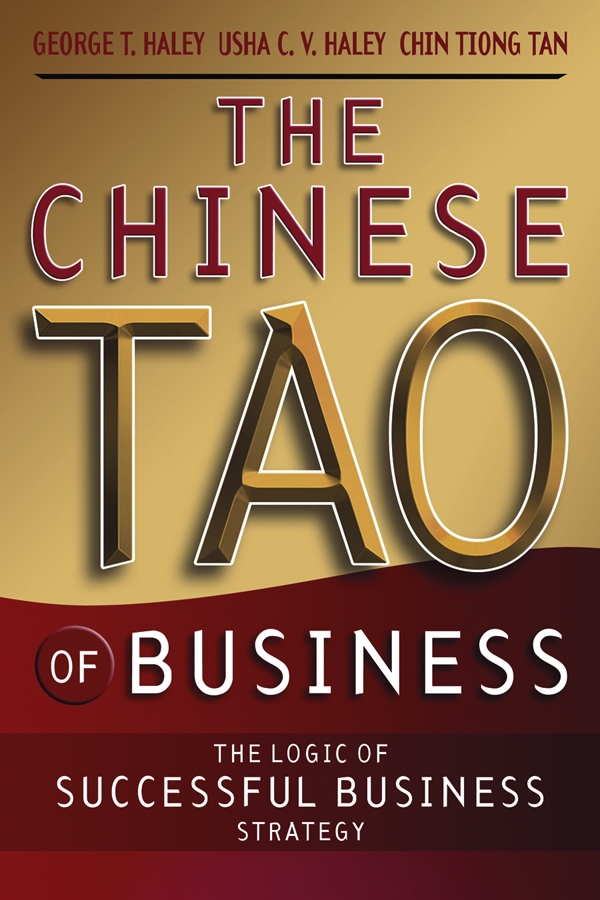Contents

Copyright 2004 by John Wiley & Sons (Asia) Pte Ltd
Published in 2004 by John Wiley & Sons (Asia) Pte Ltd
2 Clementi Loop #02-01, Singapore 129809
All rights reserved.
No part of this publication may be reproduced, stored in a retrieval system or transmitted in any form or by any means, electronic, mechanical, photocopying, recording, scanning or otherwise, except as expressly permitted by law, without either the prior written permission of the Publisher, or authorization through payment of the appropriate photocopy fee to the Copyright Clearance Center. Requests for permission should be addressed to the Publisher, John Wiley & Sons (Asia) Pte Ltd, 2 Clementi Loop, #02-01, Singapore 129809, tel: 65-64632400, fax: 65-64634605, email: .
This publication is designed to provide general information in regard to the subject matter and it is sold with the understanding that neither the Publisher, Editor or Author are engaged in providing legal, accounting or other professional advice or services and do not in any way warranty the accuracy or appropriateness of any of the formulae or instructions discussed in the Publication nor provide any warranty that use of any of the same may not cause injury, illness or damage to the user. Readers should seek appropriate advice from suitable qualified professionals or obtain independent advice or verification of the relevance and appropriateness of the use of any formula or instructions prior to use of these in relation to any of their activities.
Other Wiley Editorial Offices:
John Wiley & Sons, Inc., Ill River Street, Hoboken, NJ 07030, USA
John Wiley & Sons Ltd, The Atrium, Southern Gate, Chichester, P019 8SQ, England
John Wiley & Sons (Canada) Ltd, 5353 Dundas Street West, Suite 400, Toronto Ontario M9B 6H8, Canada
John Wiley & Sons Australia Ltd, 42 McDougall Street, Milton, Queensland 4064, Australia
Wiley VCH, Boschstrasse 12, D-69469 Weinheim, Germany
Library of Congress Cataloging in Publication Data
ISBN 0470-82059-4
We dedicate this book to those who instructed us in the Way:
Helen Basila Haley, James B. Haley and Sarah Basila;
Nandini Venkatesan and Dr. C. Venkatesan;
Indira Bellare and Vasudevrao Bellare;
Khoo Loo Eng and Tan Thye Bee
Acknowledgments
George T. Haley,
Usha C. V. Haley, and
Chin Tiong Tan
USA & Singapore July 2004
A book of this nature requires the support and co-operation of several people. In particular, an international group of senior managers gave us considerable time and valuable insights; to these managers (listed in Appendix A), we extend our sincere thanks.
We owe an enormous debt, too, to the businesspeople, colleagues and students with whom we have discussed and refined the ideas in this book. We thank them all, particularly Csaaba Soos (formerly of Artesyn Technologies) Frank-Jurgen Richter (Director for Asia, World Economic Forum), and Indra Nooyi (President and Chief Financial Officer, Pepsico). Winnie Hu and Austin C. T. Hu (Deputy Chief of Mission, The World Bank Office, Beijing) provided enormous assistance for our interviews in Beijing.
We also owe sincere thanks to Nick Wallwork, Malar Manoharan and David Sharp of John Wiley & Sons Publishing. Without their faith, patient support, encouragement and occasional nagging, we would never have completed this project.
This project was funded by a grant from the Scholarly Research Grant Program of the University of Tennessee, Knoxville, and we thank Oscar Fowler and David Schumann for providing this support.
Tan Poh Lin, at the Singapore Management University, provided efficient help by transcribing interviews with managers.
This book went through several iterations and required co-operation of numerous people across myriad time zones in Hong Kong, China, Singapore and the USA. We owe a deep debt to our families, and heartfelt thanks to our friends and colleagues, as well as George and Ushas cats, Comet Baby and Marmalade, for easing strain, making life enjoyable, and for their support and patience when deadlines loomed and tempers frayed.
Finally, we owe an intellectual and emotional debt to our parents and grandparents for showing us the Way, the foundation for a meaningful life; to our ancestors, we dedicate this book.
About the authors
George T. Haley
George T. Haley, Ph.D. (University of Texas at Austin), is Director of the Center for International Industry Competitiveness and Professor of Industrial Marketing and International Business at the University of New Haven where he teaches in the graduate and executive programs. He has taught on the faculties of other top universities, including the Institute Tecnologico y de Estudios Superiores de Monterrey (Monterrey, Mexico), the National University of Singapore (Singapore), the Queensland University of Technology (Brisbane, Australia), Thammasat University (Bangkok, Thailand) and Harvard University (Cambridge, USA). He has also presented seminars to academics, businesspersons and government policy makers in Vietnam, Thailand, India, Singapore, Mexico, Australia and New Zealand.
A frequent public speaker for corporate executives and government policy makers worldwide, and an award-winning author, George has over 100 books, book chapters, articles and research reports. He also wrote New Asian Emperors: The Overseas Chinese, their Strategies and Competitive Advantages, the top-selling book on Asian business strategies worldwide in 1999, also referred to as an important study by the Economist.
An expert on emerging and industrial markets, including the historical, cultural and legal environments in which Chinese business strategy is formulated, George consults with several multinational companies and governments in Asia, Australia, Latin America and the USA. His expertise includes strategic forecasting and the management and auditing of technology and intellectual property in emerging markets.
He is on the Review and Advisory boards of several US and European journals including International Marketing Review, Industrial Marketing Management, Journal of Business & Industrial Marketing, Marketing Intelligence & Planning, and the Journal of Management Development, where he lends his expertise on Asia and other emerging economies. Additionally, he has guest edited several journal special issues on business in emerging economies and on Internet-Based B2B Marketing.
Georges research is regularly profiled in the media including the Economist, the Far Eastern Economic Review, CNN, Voice of America, the Wall Street Journal, the Los Angeles Times, Fortune, China Business Weekly, Marketing News and IndustryWeek. Some of this coverage, including research and reviews for the Chinese Tao of Business is available at or tel/fax: 212-208-2468.
Usha C. V. Haley
Usha C. V. Haley (PhD, Stern School of Business, New York University) is Director of the Global Business Center and a Professor of International Business in the School of Business at the University of New Haven. She has more than 100 books, journal articles, book chapters and research presentations on international strategic management. Her latest books include New Asian Emperors: The Overseas Chinese, their Strategies and Competitive Advantages (Butterworth-Heinemann); Strategic Management in the Asia Pacific: Harnessing Regional and Organizational Change for Competitive Advantage (Butterworth-Heinemann); Multinational Corporations in Political Environments Ethics, Values and Strategies (World Scientific); and, Asian Post-Crisis Management: Corporate and Governmental Strategies for Sustainable Competitive Advantage (Macmillan/Palgrave).


